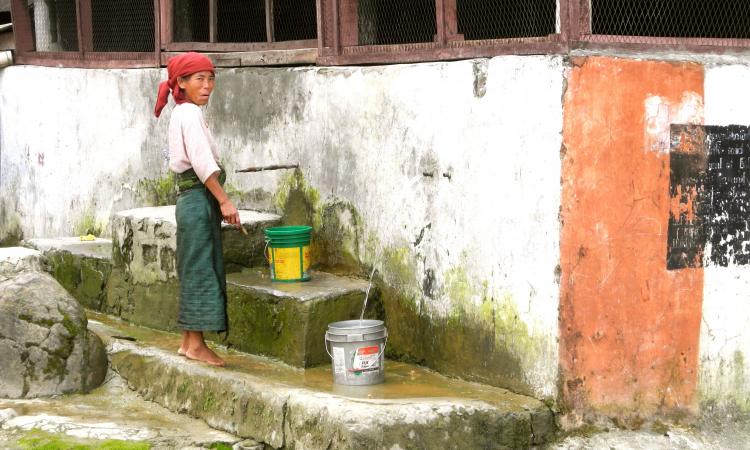
“Water flows humbly to the lowest level. Nothing is weaker than water, yet for overcoming what is hard and strong, nothing surpasses it.”– Lao Tzu
At a time when many predict that water could be the cause of the Third World War, there is a small oasis of hope tucked away in the hills of Nagaland. A place where the quote comes to life, where the human spirit rises above the level of give and take.
Mima, near Kohima, does not have a water source to suffice its population of over 3000 people. Inhabited by the Angami tribe, most of its people depend on agriculture for a living - wet paddy cultivation to be specific. It does not have any forest land to call its own unlike most other villages and communities. (Nagaland has only 11.7% of forests under Government control, the remaining 88.3% belong to non-government communities of the villages).
Jakhama and Kigwema, two villages located upstream provide for Mima’s drinking water needs, purely out of goodwill and not even physical labour to maintain their forests/watershed area. Water travels around 20 kms from the Kerhoru river and is brought to Mima through a network of pipes and reservoirs from where it is collected by individuals.
This may not be a unique case. It might be happening in many other villages in Nagaland across different tribes as well. What makes it special is that it's happening at a time where Payment for Ecosystem Services (PES) is much talked about. These payments are incentives offered to farmers or landowners in exchange for managing their land to provide some sort of ecological service.
This is much debated upon, with the proponents of PES stating that it is a transparent mechanism for ensuring that farmers and other peoples are not defrauded of their rights. The opponents however point out that this may not always be efficient, that it does not prevent people 'downstream' of the ecosystem from being defrauded, and that it can hamper innovation and growth among the people receiving payment for the services provided by the ecosystems they manage.
One argument that is not mentioned, however, is the ethics of stewardship, which is an ethic that embodies the responsible planning and management of resources (Wikipedia). Indigenous tribes have long recognised the importance of conservation for future generations, and assumed the role of trustees of the earth's resources. By converting this view into that of commerce, are we damaging the sustainability of ecosystem management?
Jakhama and Kigwema provide water to Mima out of a regard for Mima's well being, and also out of a sense that they are the stewards and not the owners of Kerhoru's water. Mima's indebtness towards the two upstream villages is possibly a strong incentive for it to actively maintain friendly relationships between the three villages.
What if this were a commercial transaction instead with Mima paying for its water? Would this, then, open a bidding war? Would Mima decide that it is in it's interests to foster differences between Jakhama and Kigwema?
A scary situation, indeed. If that were the case, then what will be the impact of PES on the stewardship of generations to come?